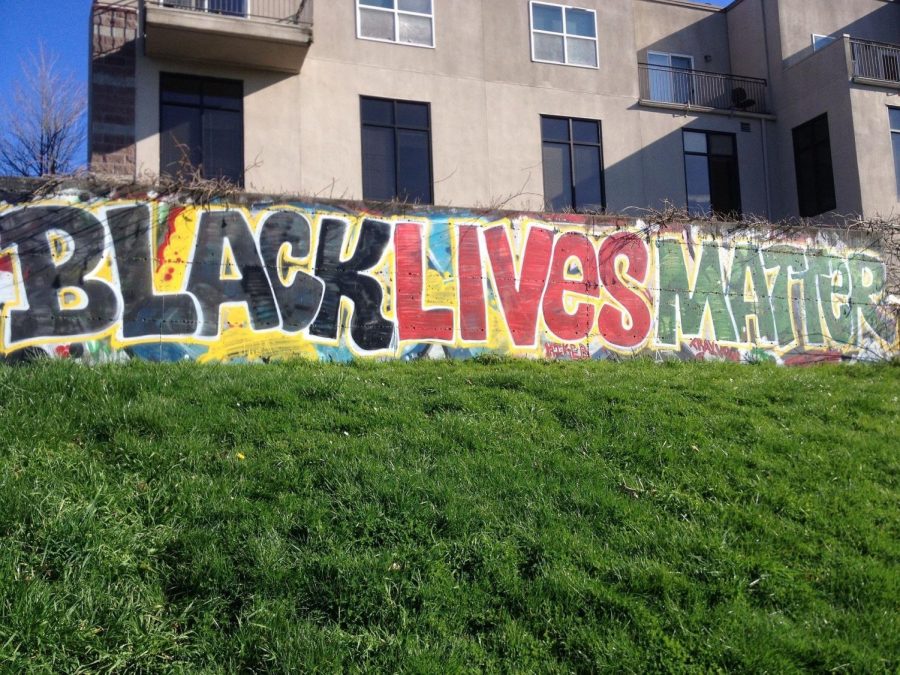Students Participate In Black Lives Matter Protests
Protests in Raleigh over the death of George Floyd drew students into the capital city
October 28, 2020
When the death of George Floyd broke mainstream news, Americans were outraged. For months Floyd’s name filled news headlines, social media pages and twitter hashtags. The incident sparked calls for change in the form of one of the largest nationwide protests in history.
Locally, we saw protests pop up in major North Carolina cities. Seizing the opportunity, several students attended these protests with the hopes of having their voices heard.
Senior Anna Thomas attended protests over the summer and described her experience.
“Being in and around the energy of the protests was an out-of-body experience, and I was able to connect with so many different people of different backgrounds,” Thomas said. “There was a profound sense of unity in the demonstrations.”
Along with Thomas, fellow senior Melissa Campell attended the protests and shared her feelings regarding safety.
“The protest felt really welcoming, especially because it was my first one, and everyone looked out for each other and made sure everyone was safe,” Campbell said.
Campbell felt called to protest, because she believes that the Black Lives Matter movement is bigger than just politics.
“I think it’s extremely important for me to protest because my life, and the lives of the people around me, are literally at stake,” Campbell said. “This isn’t a political issue that people can agree to disagree on; it’s literally human rights, and us being in the streets shows how large the presence is and how serious we are.”
Like many, Georgia Thomas left the protests feeling inspired.
“It was very eye opening, and seeing all those people standing up for what they believe in really makes you feel like you can make a difference,” Thomas said.
Anna Thomas said there was a heavy police presence at the protest she attended, and as tensions began to escalate, police used tear gas to disperse crowds.
“The first protest I went to was pretty moderate in police coverage, until we got to the Sheriff’s department. Then there was a lot of SWAT surrounding us,” Thomas said. “We got tear gassed a couple of times, and it was quite painful. It doesn’t just burn your eyes, but you can feel it in your mouth, on your skin, and in your lungs.”
Georgia Thomas’s experience with the police differed from Anna Thomas.
“The police actually helped clear the streets on their motorcycles and made sure we were all safe,” Thomas said.
Throughout history, many successful movements have been challenged with opposition. Black Lives Matter is no different, as the movement has faced many criticisms. Senior Sara Nyarangi witnessed resistance to the movement first hand at the protest she attended.
“There were many other small counter protesters on the sides of the road as we walked. All they did was yell at us but didn’t really try to get in our way,” Nyarangi said.
Unlike Nyarangi, senior Eva Bofenkamp did not witness any counter protesting; however, she has seen many objections to the Black Lives Matter movement online.
“I think everyone has the right to their own opinion, but I don’t think this should be a political or a debatable issue,” Bofenkamp said. “I can understand not agreeing with riots and violence or disagreeing with certain political views that align with BLM, such as defunding the police, but I don’t understand how so many people are not phased by all the lives lost to police brutality.”
Despite the controversies, senior Emma Stern believes change is possible.
“I hope the BLM movement will push our politicians to fix our serious systemic racism issue in America. We need to fight the corruption within the government and the police force,” Stern said.
Stern is hopeful for the future and urges politicians to listen to the protesters.
“I think this movement will push our politicians to enact real change in the next decade. Although there has been significant pushback, I think our voices will be heard.”


